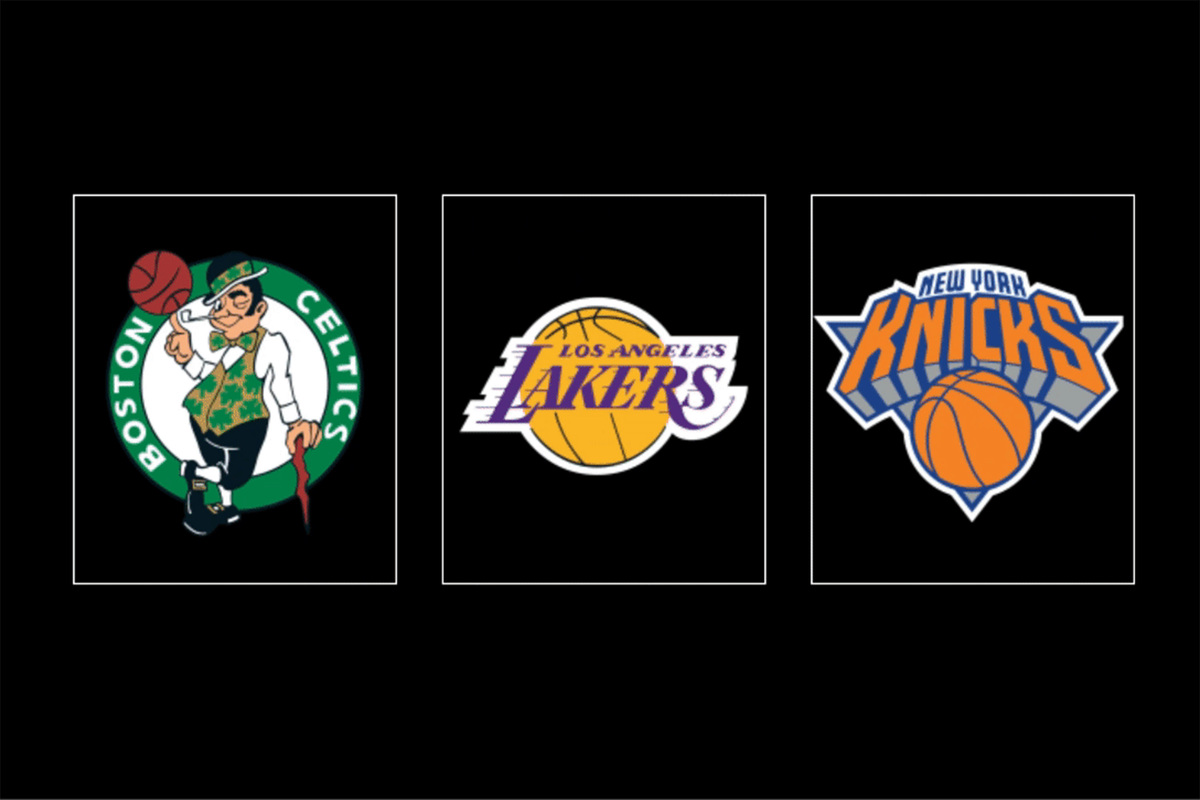When Joe Mazzulla sits down to talk with reporters, his eyes rapidly shift from left to right. You imagine he is identifying where all the exits are. Like Al Capone, he never sits with his back to the entrance. He regurgitates plays like Alexa on 2x speed. When fans created AI-generated quotes from him, they were indistinguishable from real things he has said. He (famously) used to watch The Town multiple times a week. He’s robbed Fenway Park in his mind. He takes his coaching cues from soccer managers. He enjoys blown leads and rainy days. He thinks getting booed is “good for you.”
To demonstrate how the Boston Celtics should attack opponents, he splices videos of orcas, who hunt bigger prey by swimming in packs and taking turns drowning them, into film sessions. It all sounds a little strange, a little pie-in-the-sky, until you consider how collective the Celtics playoff dominance has been, and how Luka Doncic, the white whale of the Western Conference, is now gasping for his last breath.
Last season, Mazzulla was hastily tapped as the Celtics’ interim head coach just days before training camp, after Ime Udoka was suspended. His quirks became a source of intrigue, humor, and—when his methods didn’t work—mockery. But even after losing to the Miami Heat in the Eastern Conference finals, he doubled down, telling JJ Redick at the beginning of this season that the fault didn’t lie with his philosophy as much as his execution. “I didn’t teach it well,” he said. “I didn’t put my players in the best possible position to succeed. Now I gotta double down on my teaching.”
Luke Kornet, the Celtics’ backup center, who would often run into Mazzulla while attending Mass on road trips, credits his coach’s commitment to his vision to his faith. “When you know who it is you’re truly accountable towards and what your heart tells you about the best thing to do,” says Kornet, “to act in any other way other than that would be lying and deceitful. He’s very convicted on that end.”
So it is that 35-year-old Mazzulla, the youngest and most idiosyncratic coach in the NBA, has one of the oldest and most storied franchises in history up 3-0, one win away from their first title in 16 years.
It’s also, to hear him tell it, the most vulnerable they’ve ever been. “If you’ve ever been in a fight with someone and you think you’re about to beat them, you usually get sucker punched,” he says. “The closer you are to thinking you’re going to beat them up, the closer you are to losing.”
If Mazzulla is an artist, film is his canvas, and iMovie is his paintbrush. Early in the playoffs, a Celtics film session began with a clip of a UFC fighter getting “hit in the nuts,” complaining to the referee, and getting choked out the next round. It was a reminder, for a team that steamrolled through the regular season, to never lose their focus. The closer you are to winning, he says, the closer you are to relaxing, to looking ahead, to getting distracted by forces outside your control. Arrogance creeps in. The desperate opponent, humbled by loss, musters one last gasp.
After the Celtics won Game 3, the philosophy, repeated by a reporter, prompted Jayson Tatum to nod emphatically and recall his own experience last year, of almost coming back from down 0-3 against Miami last season. For a team prone to blowing leads, playing down to its competition, and riding the highs and lows of Mazzulla’s 3-point-heavy, high-variance style, the lesson probably resonated more.
After Boston lost to Miami last postseason, Mazzulla’s no-timeout philosophy, inspired by his love for soccer, made him look like a deer in the headlights as opponents ran off giant comebacks. He wanted the Celtics, despite the constant stoppages and substitutions that make basketball a more methodical game, to be able to solve things on the fly like soccer players have to. His adherence to the 3-pointer, despite its feast-or-famine outcomes, made him look like a stubborn wonk, not a creative genius.
It’s not something, Jared Weiss of The Athletic pointed out in the postgame press conference after Game 3, that he gets questioned about anymore. “I think we got asked that question a lot just because it was new,” Mazzulla said. “Anytime you’re developing a new philosophy or style it just takes time for understanding and execution.”
Mazzulla still wanted the Celtics to lean into improvisation, to move the ball back and forth and seek advantages, to recognize why other teams were making runs and self-correct. His ideas didn’t just come out of his obsession with soccer but an understanding that despite our discursive fixation on the key timeout and the big adjustment, once the ball is in the air, coaches control less of the outcome than the mythology around the profession would have you believe.
“I think it’s just his big-picture understanding of what is best for our team and what’s most important, knowing his role and kinda having humility about it, knowing the things he has control over aren’t the most powerful thing in the world,” says Kornet. “What you have at your disposal as a coach, a lot of times it just seems like timeouts, and they can use those, but at the same time knowing maybe my work needs to be preparing my guys so we can withstand [runs].”
The Celtics front office also doubled down on Mazzulla’s philosophy, trading their emotional leader Marcus Smart for Kristaps Porzingis, who could space the floor even more accurately than Al Horford. They also traded for Jrue Holiday, a two-way transition terror who could play multiple positions—basketball’s answer to a midfielder if there ever was one—and a Mazzulla-ball fever dream.
Boston fired off even more triples per game this postseason than last, but it also crashed the offensive glass harder—turning some of those misses into second-chance points—and used the 3 to reduce turnovers. Take this play from Game 2 of the Finals:
It was the kind of sequence that can infuriate fans and coaches: Tatum, switched against a big, eschews driving to the rim and settles for a pull-up 3—a shot he’s hitting just 27.9 percent of the time this postseason—and gets bailed out by his teammate. But in Mazzulla’s system, with a power guard like Holiday empowered to crash from the corner, it’s a safe play with upside—the equivalent of dumping the ball down the field, hoping an offensive player takes control of it, and buying time to set your defense if possession changes. “We were in offensive rebounding position,” says Mazzulla, “the floor was balanced, we had the matchup we wanted, and it allowed us to do both: offensive rebound and get back in transition.”
Here, Mazzulla is thinking not only of what happened but what didn’t. A driving layup could have left the Celtics defense vulnerable in transition or, worse, ended in a live-ball turnover. Most teams that crash the glass give up a lot of fast-break points, or vice versa. This season, Boston was one of only four teams in the top 10 in offensive rebounding rate and fast-break points defended.
There’s some mental jujitsu going on here, too: In public, Mazzulla defends his best player, while privately tinkering with a system that turns Tatum’s flaws into strengths—or at least minimizes their negative impact.
On one level, the Celtics rode through an unhealthy Eastern Conference that wasn’t built to stress Mazzulla’s theories. On the other, so much of what could go wrong for the Celtics did: Porzingis has played all of six games. Boston’s shooters went cold in Game 2 against the Mavericks. Tatum has shot below 30 percent from the arc for the entirety of the playoffs. It looked, halfway through Game 2 on Sunday, as though Doncic had figured out how to beat Boston’s pick-and-roll coverage. In Game 3, the Celtics nearly blew a 21-point lead in the fourth quarter. Mazzulla, according to Derrick White, probably liked it. “He’s a sicko.”
None of the Celtics mishaps or shooting slumps have mattered. They are one win away from a title, behind a self-sustaining, self-correcting system that reinforced them despite their flaws and allowed them to trust the numbers. Some Joe Math for you: Through the first three games of the series, the Celtics have taken 127 3s. Dallas has taken just 78. They haven’t been perfect, but they haven’t been fragile either, able to withstand the uncertainty their style necessitates.
Maybe a hotter-shooting Mavericks team, or a healthier Eastern Conference, could have put Mazzulla’s decision-making under the microscope again and tested him to make adjustments he isn’t comfortable with. The strength of the competition they faced will feed a tension that will follow them even if the Celtics do raise their 18th banner: Did they win because they weren’t tested? Or did it look like they weren’t tested because they were so prepared?
“I think everybody tries to look at the game the same way, so I think the more you look at it from a different spectrum, it allows you to build connections and it really allows you to focus on where games are won and lost,” Mazzulla says. “I think everybody notices the easy things. Can you fight to notice the things that other people aren’t? Because that’s where winning and losing is, in that space.”

